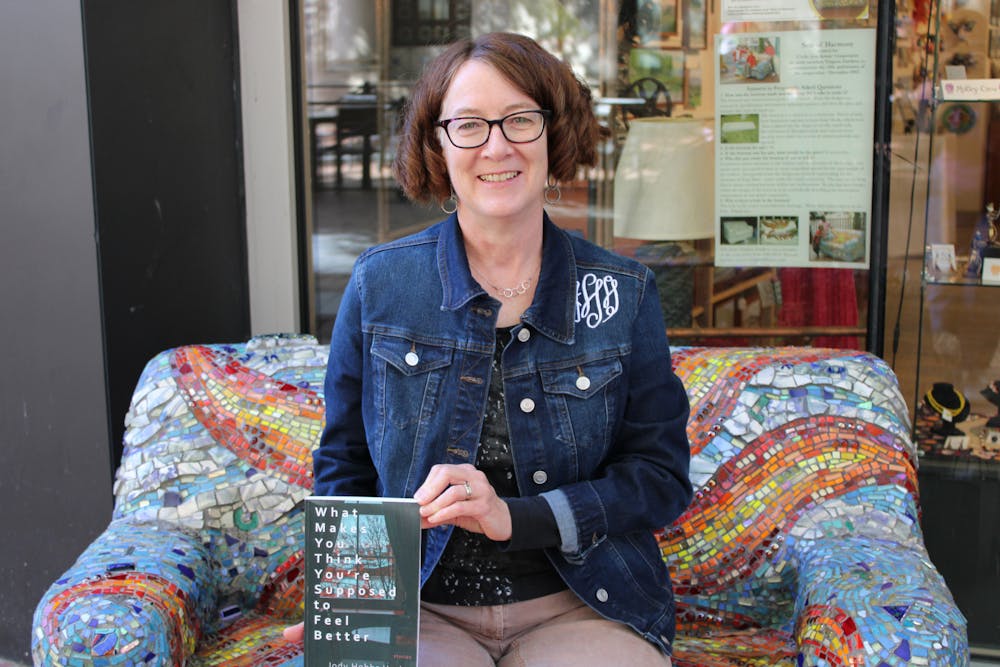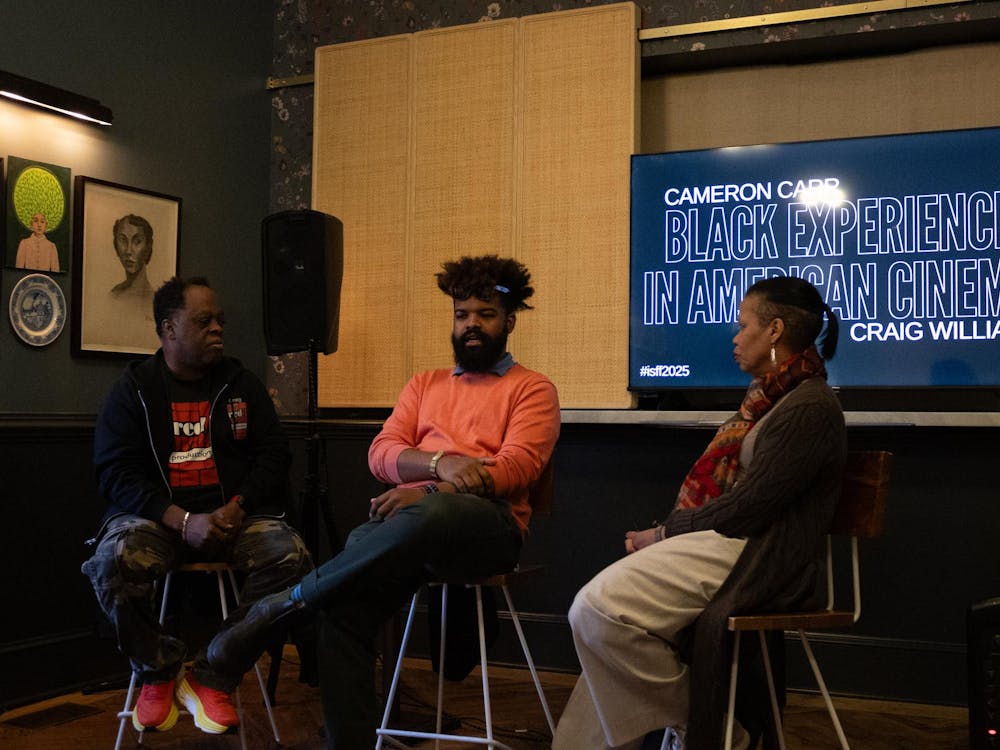Longtime Charlottesville resident and acclaimed writer Jody Hobbs Hesler recently released a powerful first collection of short stories entitled “What Makes You Think You’re Supposed to Feel Better?” The collection — which was released Sunday Oct. 15 — contains a wide-ranging plethora of fiction short stories, all set in Central Virginia. Through each of her characters’ lives, she focuses on messages of moving through painful moments instead of remaining blindly positive.
Hesler’s bundle of short fiction pieces, ranging anywhere from five to 25 pages, follow a diverse range of Virginian characters and stories. From guilty affairs to mysterious children to choices seeping with compassion and regret, the stories have a wide cast of characters, situations, emotions and realizations. The variety in her pieces is a bit of a new take on short story collections, which used to be much more uniform in storyline according to Hesler.
“For a long time short story collections were expected to be linked in some way. They're all the same character doing different things,” Hesler said. “That form didn't appeal to me as a writer. I like variety… so I didn't like the idea of a collection of stories being linked that tightly.”
Hesler — who currently teaches at WriterHouse in Charlottesville — also writes longer novels, one of which will debut in November. She said that she considers both shorter and longer form writing important parts of her writing identity. Hesler also works on both forms of writing at the same time, which she considers to be mutually strengthening.
“Writing in different forms is like cross training is for an athlete,” Hesler said. “If you run marathons, you make your muscles really long, so you have to do something else to strengthen them or keep them limber. You alternate between different [exercises] to make yourself healthier.”
Though Hesler’s stories have no common characters or plots, she did find through lines in the messages behind her words.
The title of her collection, “What Makes You Think You’re Supposed to Feel Better?” is a quote from a character in one of the stories in the collection. Without giving away too much of the plot, Hesler hinted at the deeper meaning behind these words and the moment where the story shifted beyond the situational context into a broader meaning of human emotion.
“[Writing this line] was the moment where this story became less simple,” Hesler said.
According to Hesler, these pieces convey the dissonance between happiness and experiencing the necessary pain of life.
“There's such a focus in our culture on happiness as your constant state, as if that's what you're supposed to be like,” Hesler said. “Every minute is supposed to be this bright, shiny moment…it's a lot of pressure on all of us to think we're supposed to always feel great…
It's healthy not to feel up all the time, you know.”
Hesler said she sees these feelings of her characters reflected in her life and the people around her, specifically through the process of parenthood.
“I think it really has been a function of raising children…somewhere in there the focus of what we're most worried about changes from what's gonna happen today to a bigger outlook,” Hesler said.
Hesler is holding a book event for “What Makes You Think You’re Supposed to Feel Better?” on Oct. 27 at New Dominion Bookshop, which is free and open to the public. The event will feature a reading from one of her stories and a Q&A in conversation with Sharon Harrigan, another Charlottesville writer and one of Hesler’s coworkers at WriterHouse.
Hesler said she hopes that University students and prospective authors will attend this event as a way of connecting with the broader Charlottesville writing community.
“We would love it if students come,” Hesler said. “I would love for them to come, introduce themselves afterwards, and tell me about themselves…especially young writers that are curious about the process. It would be good to see what they had to say.”
Regardless of writer aspirations, Hesler’s collection contains powerful messages of working through the negative emotions that anyone at any age could benefit from hearing. Through Hesler’s powerful character building and rhetoric, readers can internalize the important yet often overlooked mantra of “it’s okay not to be okay.”
“I think something that I've noticed in my life in the last 10 or 15 years is how difficult it is for people to be in any situation while a problem still exists while a bad feeling is still there,” Hesler said. “If we could accept feeling bad first, we could get the idea that it’s actually not a bad thing to have to feel through something to get to the other side.”
Interested readers can now order “What Makes You Think You’re Supposed to Feel Better?” on bookshop.org and the Barnes & Noble website. More information about the collection is available on Hesler’s website.







